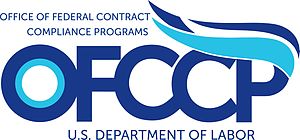
I’ve gotten a few calls this week from clients concerned about coronavirus. My clients have employees returning from travel to China/Korea/Japan and want advice on protecting the employee, their customers and co-employees. From a practical perspective, the Centers for Disease Control have issued guidance for business owners on responding to coronavirus in the workplace: CDC Coronavirus Guidance.
I. Legal Issues
From a legal perspective, employers have two primary statutes that relate to their employees and coronavirus: (1) the Occupational Safety and Health Act (“OSHA”); and, (2) the Americans with Disabilities Act.
OSHA has a “General Duty Clause” that requires employers to furnish “a place of employment which [is] free from recognized hazards that are causing or likely to cause the death or serious physical harm to … employees.” In short, employers have a general duty to protect employees from hazards. That’s great, in concept, but how does it apply to coronavirus?
At this stage, employers should take common-sense steps to prevent the spread of contagious illnesses in the workplace. Most employers already have these steps in place. Provide hand sanitizer at multiple locations. Regularly clean and disinfect public areas. Make sick employees stay home. If the cornavirus threat spreads in the United States, there may be increased duties under OSHA for employers to provide personal protective equipment and/or take other measures. But, those are not necessary at this stage.
Generally, the ADA prohibits employers from taking an adverse job action against an employee who is disabled or “regarded as” disabled. So, would the ADA prevent an employer from suspending or terminating an employee who is infected with coronavirus or suspected of infection? I have strong doubts that the ADA would apply. But, I will give my lawyerly disclaimer: Only a judge and/or jury can make a final determination on legal liability. In particular, the transitory nature of any virus is unlikely to amount to a disability under the ADA. Moreover, the Eleventh Circuit has expressly found that an employer’s fear an employee might develop Ebola in the future does not amount to “regarding” the employee as disabled. Here’s a link to a blog post that I wrote about that case:Fear of Future Infection and the ADA. That analysis would seem to apply equally to fear of contraction of coronavirus.
Employers may also want to require their employees to undergo a medical examination. Even though coronavirus might not be a disability, the ADA generally imposes restrictions on medical examinations regardless of an employee’s status as disabled. The EEOC previously issued guidance on steps that an employer can properly take under the ADA relating to a pandemic. Here’s a link to that guidance: EEOC/ADA Pandemic Guidance. In general, employers can ask employees about potential exposure to coronavirus; ask employees how they are feeling; and, require symptomatic employees to stay home.
II. Practical Advice
If one of my Alabama clients has a genuine fear about coronavirus, I have advised them that they should allow asymptomatic employees returning from “hot spots” to work from home, if possible. If work-from-home is not an option, then consider requiring the employee to stay home — and pay the employee at the employer’s expense. If overhead makes gratis leave infeasible, consider requiring the employee to use accumulated paid leave. Employers should consult with counsel before requiring an asymptomatic employee to take unpaid leave.








